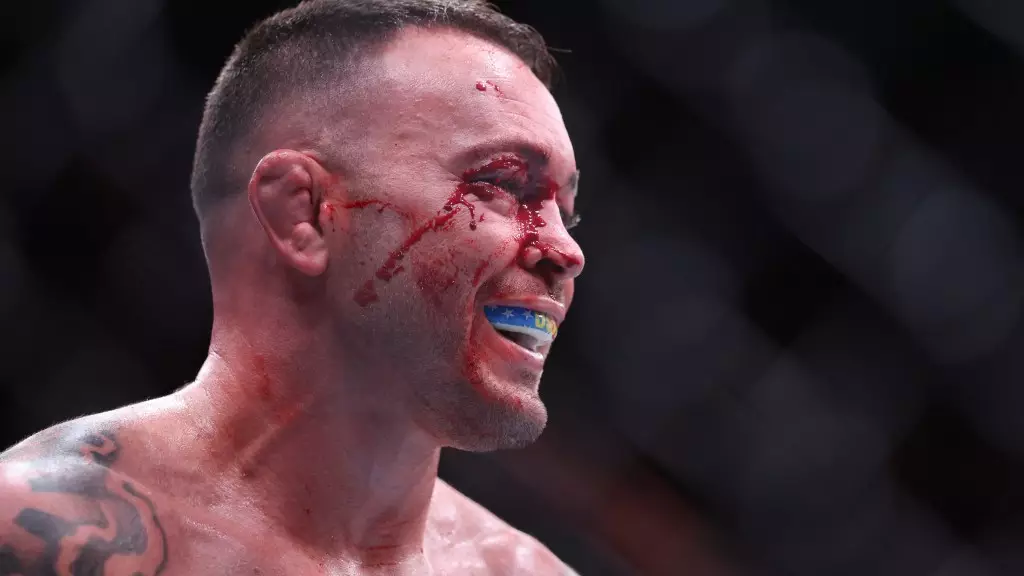Colby Covington’s recent trajectory in the Ultimate Fighting Championship (UFC) has been tumultuous, marked by a disappointing two-fight losing streak, culminating in a doctor stoppage TKO at the hands of Joaquin Buckley last month. Covington’s record now stands at 17 wins and 5 losses, with a 12-5 standing in the UFC. These setbacks place him in a precarious position in the welterweight division, particularly as he finds himself winless in three attempts at undisputed titles. While many might view this as a signal to reassess their career or consider retirement, Covington remains undeterred, displaying a level of tenacity that is emblematic of his fighting spirit.
In a recent Twitch stream, Covington invoked the name of Daniel Cormier, a former UFC double champion who seized titles later in his career. This comparison highlights Covington’s belief that success is not exclusively reserved for fighters who reach their peak early on; instead, with grit and determination, even fighters later in their careers can ascend to the top. Covington’s assertion that he can still become champion despite being 36 years old suggests a willingness to embrace the challenge rather than shy away from it. He sees the path forward not as limited, but as an opportunity to prove the critics wrong and reclaim his place among the sport’s elite.
Central to Covington’s outlook is his confidence in a potential matchup against the current welterweight champion, Belal Muhammad. With a professional record of 24-3, Muhammad has earned respect in the octagon, yet Covington asserts he has the advantage in this fight. He characterizes Muhammad as a non-threat in terms of wrestling—a crucial aspect of UFC strategy as grappling skills can dramatically alter the dynamics of a fight. Covington’s assertions that he can “smack that dude silly” reflect not just bravado but also a calculated understanding of his own strengths compared to those of his opponent.
Interestingly, Covington’s remarks about Muhammad—suggesting he is somewhat obscure—speak to a broader theme in fighting sports: the importance of being recognized as a marketable fighter. Covington’s brash personality and less-than-filtered speech have often garnered attention, even when his fights have not. He hints that a decisive victory over Muhammad would not only elevate his career but also serve to publicize both fighters, transforming them into household names through competitive rivalry. Covington’s aspirations reveal a dual aim: personal success combined with the drive to elevate the profiles of himself and fellow fighters through notable matchups.
With Covington now sidelined temporarily from the title conversation, his next steps are pivotal. The determination to learn from his recent losses while tapping into his past experiences and influences shows a fighter committed to growth. In the landscape of mixed martial arts, the road to redemption is fraught with obstacles, yet Covington’s resilient mentality may well lead him back into the spotlight. As he aims to defy expectations and redefine his legacy, fans and critics alike will undoubtedly watch with great interest to see how his journey unfolds.

